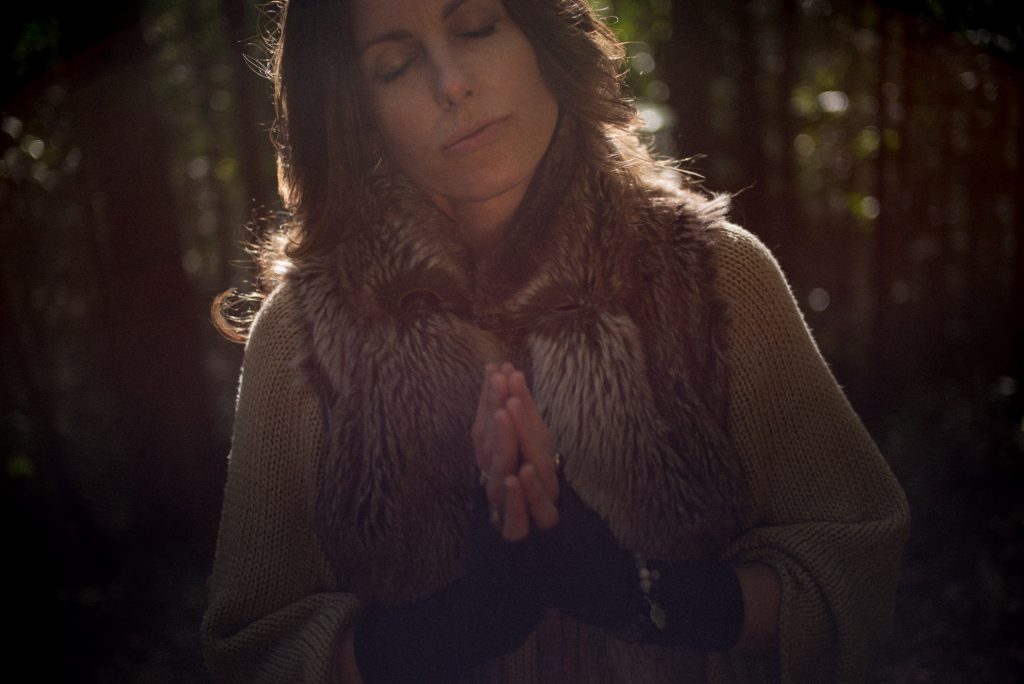
Before I share on Yoga and Tantra, from my own direct experience, on this question, it’s useful to examine the question itself – which is a question people often ask me.
The question assumes that there IS a difference between Yoga and Tantra, as if they are two separate things – like a chair and a cup. (Of course, they are not two separate things either when our view has widened enough!)
However as both Yoga and Tantra are concepts, they are not necessarily separate from each other.
It is more useful to reframe the question and ask:
What is the relationship between Yoga and Tantra?
Now that question makes more sense. However, before we answer it, we still need to define Yoga, and Tantra. Often people asking the question think Yoga means asana, for example, which it does not. Asana is one practice or tool of Yoga, but it is not the Yoga itself.
Yoga is a path to self-realization. It is the cessation of the fluctuations of the mind, as Patanjali would say, or the union of observer, observed, and observing. It is a reorientation of identity, from being immersed in the mind and body, to knowing oneself as consciousness. Of course, then, there isn’t a sense of self remaining to know…
Yoga arose thousands of years ago in it’s first forms, which were mostly transcendental and meditative. It was about accessing states of pure consciousness and bliss – samadhi – beyond this material life. There was very little asana practice – or Hatha Yoga as it’s called. That actually came out of Tantra in around 11th Century or so. (In the same way that the term Kundalinī first came out of the Tantrik texts, around 7th Century or so.)
Which is where it gets somewhat confusing. See, Tantra is an approach TO Yoga. It is a collection of View Teachings (ways to perceive the world), practices and texts that ultimately head to the same place as Yoga – self-realization. Only there is no transcending this earthly embodied experience, but rather an embracing of the material, mundane world. It is all seen as part of the play of the Universe, in which we’re invited to join in.
Tantra was a householder tradition. Practitioners had families, and jobs, and businesses, and being successful in the world was regarded as important too.
Tantra brings together both bhoga (worldly success) and moksha (liberation).
So one can be a yoga practitioner who has nothing to do with Tantra (although if you’re practicing asana… you’re touching on Tantrik approaches). Or, you can be a yoga practitioner in the Tantra lineages – of which there are many. Or, your spiritual path might not be Yoga at all, but Buddhism. And it might be Buddhist Tantra… because Tantra, as an approach to the spiritual path, infiltrated many other spiritual traditions – like Buddhism.
“The major difference between historical tantra and historical yoga is that tantra incorporates ritual, deity work (especially goddesses), physical and energetic embodiment, initiation into esoteric teachings, and the role of guru, while yoga emphasized enlightenment through discipline, and most particularly the discipline of meditation.”
If you’re focused on awakening, it makes sense to use the practices that have already proved themselves. Tantra (more-or-less) arose out of Yoga, and developed more practices – including physical postures – and so vastly expanded the yogic practices.
When Muslim conquests sent Tantrikas underground, there was a movement towards simplifying some of these practices into what would become a grass-roots system of practice called Hatha Yoga. (See Christpher Wallis’ book Tantra Illuminated for more on this.)
So does that mean that when you practice Hatha Yoga, you’re practicing Tantra?
No, not really. In the strictest sense, following a Tantrik path requires initiation, a Guru, View teachings, deity invocation, mantra practices and a sincere desire for liberation in this lifetime. Practicing asana, even every day, under an amazing teacher, does not touch on any of those other aspects.
How do you know if Tantra is an approach to spiritual life that you want to follow?
Well, Teun Goudriaan describes Tantra as;
“A systematic quest for salvation or spiritual excellence by realizing and fostering the divine within one’s own body, one that is simultaneous union of the masculine-feminine and spirit-matter, and has the ultimate goal of realizing the “primal blissful state of non-duality.”
If that description means something to you, excites you, makes you curious, or leaves you wanting more… then maybe, just maybe, Tantra is for you.
In my case, I didn’t even know that my natural tendency in spiritual practice was Tantrik.
My practice was always both formal – on the mat – and integrated. There was a burning desire for liberation, anchored in an ordinary householder life where I was a mum running a business.
When I was first introduced to Tantra by Shiva Rea and Christopher Tompkins in 2010, my response was… ‘Oh… that makes so much sense!’ I was fortunate to experience an initiation by Christopher and was given a daily Tantrik Yoga Sadhana to do. And Shiva’s approach to Yoga – which embraced spanda, sahaja and devotion more than any teacher I’d come across – also resonated with the way my home yoga practice had naturally unfolded.
On my third attempt of doing 1000 Days of that Tantrik Sadhana, I finally completed it, and I am fully immersing myself in Tantrik Yoga as a moment-to-moment approach to life and liberation.





 Conversations with Kara-Leah • Shambhavi Sarasvati on Direct Realization Tantra
Conversations with Kara-Leah • Shambhavi Sarasvati on Direct Realization Tantra